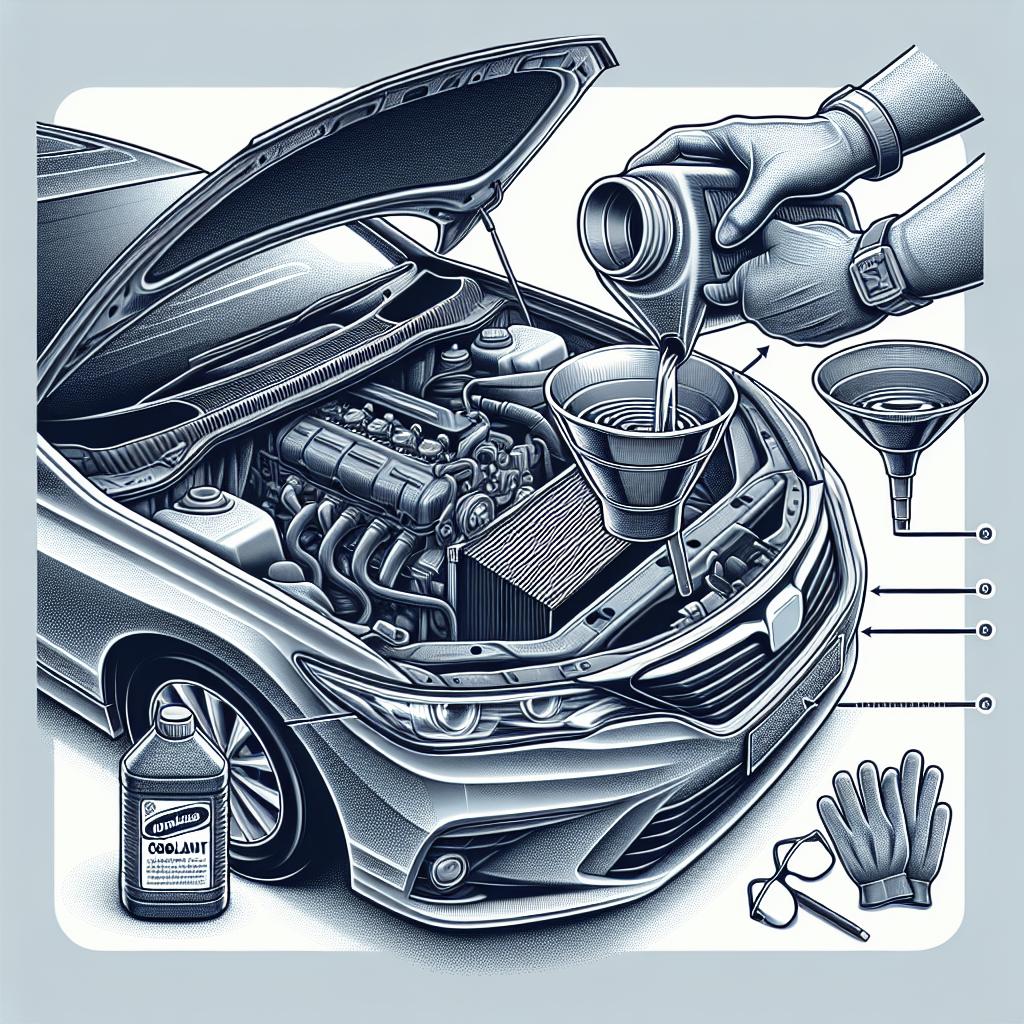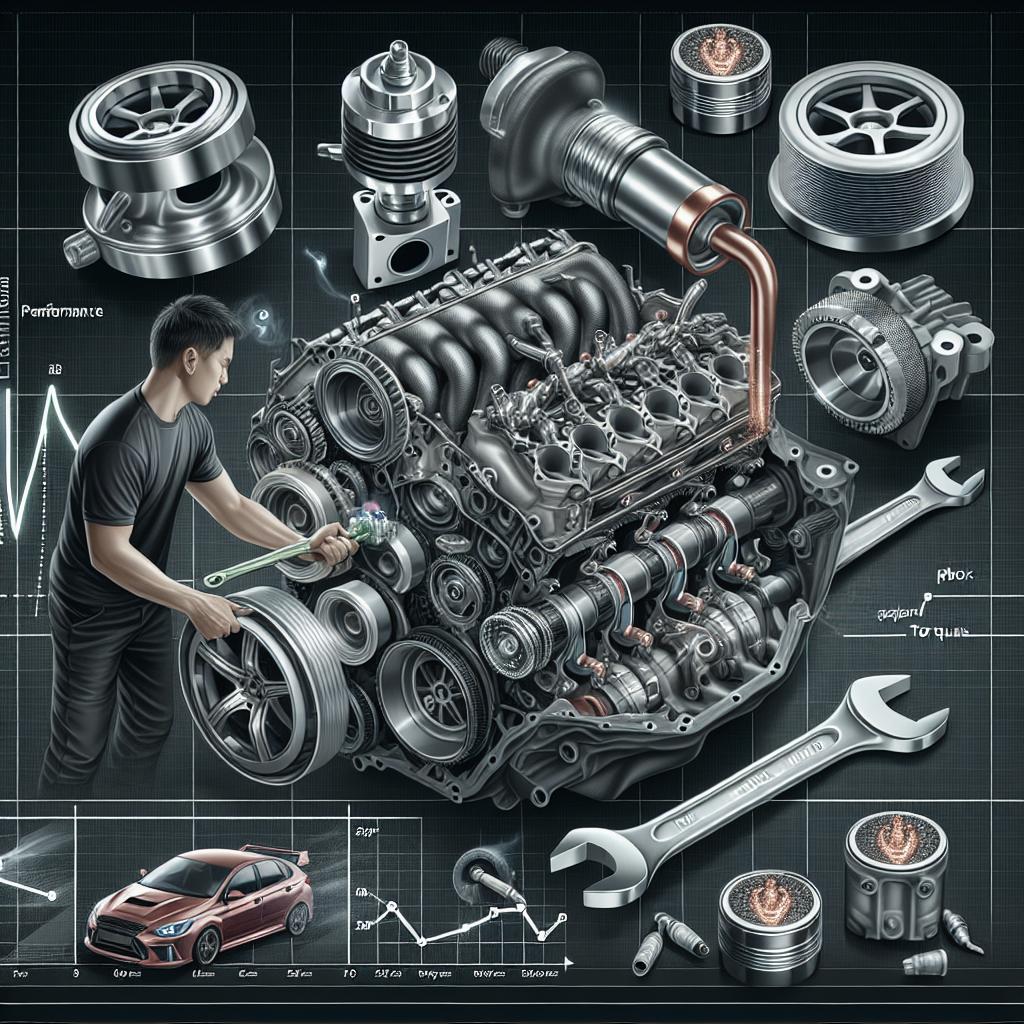“`html
Summer Car Care: Ensuring a Smooth Ride through the Heat
As summer arrives, it’s time to give your vehicle some much-needed attention to ensure it operates at peak performance in the heat. From checking your AC to testing your car battery, preparing your car for summer involves several essential maintenance tasks. Regular upkeep not only improves your car’s efficiency but also extends its lifespan. This blog post offers a comprehensive look at key summer car care tips to help you stay safe and comfortable during your journeys. Whether you’re planning a road trip or simply navigating daily commutes, following these steps will ensure your car is in the best shape to tackle the summer heat.
Key Takeaways:
Regular maintenance and checks are essential to keep your vehicle running smoothly during the summer months. Prioritize your air conditioning system, fluids, brakes, tires, battery, and filters for an efficient and enjoyable summer driving experience.
1. Check if the AC works
As temperatures soar, having a functional air conditioning system is crucial for comfort. Start by checking the AC’s performance. Turn it on and test for cool air. If it’s not blowing cold, it may be time for a professional inspection. Issues with the AC unit could stem from a variety of problems, including low refrigerant levels, leaks, or a malfunctioning compressor.
Regular servicing of the AC can prevent these issues. If you notice an unpleasant smell when the AC is turned on, it might indicate mold or bacteria growth. In such cases, a thorough cleaning or a system deodorizer might be required. Remember, a well-maintained AC system not only provides comfort but also contributes to your vehicle’s overall efficiency.
2. Change the oil and oil filter
Oil changes are crucial to your engine’s health, especially during summer. High temperatures can affect engine oil, making it less effective at lubricating the engine’s moving parts. Check your vehicle’s manual to know the recommended oil change interval. If you plan to go on a long road trip, consider changing the oil before you leave.
Along with the oil, the oil filter should also be replaced to remove any accumulated dirt and debris. Using the correct type of oil for summer conditions as recommended by your vehicle’s manufacturer will improve performance. Regular oil and filter changes enhance fuel efficiency and prolong engine life.
3. Check fluid levels
Fluids are the lifeblood of your vehicle, ensuring each system functions correctly. Regularly inspect coolant, brake, transmission, and power steering fluids. Coolant is crucial during summer as it prevents the engine from overheating. Replenish the coolant if the levels are low, and use a 50/50 mix of coolant and water for best results.
Brake and transmission fluids are equally important; they help ensure smooth operation and safety. Check each fluid level and top them up as needed. Look for signs of leaks under your vehicle, as any drops in fluid levels might indicate a leak, needing professional evaluation.
4. Inspect your brakes
Brakes are a vital safety feature of any vehicle. Therefore, inspecting them ahead of summer travels is crucial. Factors like high temperatures and long-distance drives can cause wear and tear on the brake system. Start by listening for any unusual noises when you brake, as these might indicate worn-out brake pads or rotors.
Common signs of faulty and worn-down brakes include:
- Squeaking or grinding noises during braking
- Vibration or pulsating brake pedal
- Longer stopping distances or poor brake responsiveness
Regular brake inspections can prevent costly repairs and ensure your safety on the road. Consult with a professional if any of these issues arise.
5. Check your tires
With fluctuating temperatures, tire pressure can vary significantly. Under-inflated tires can lead to poor fuel efficiency and increased wear. Use a tire pressure gauge to check the pressure regularly and maintain it according to the manufacturer’s recommendations. Besides pressure, visually inspect the tires for wear and tear, focusing on tread depth and sidewall condition.
Consider rotating your tires, as uneven wear can affect driving safety and comfort. If the treads are significantly worn out, it might be time to invest in a new set of tires. Remember, well-maintained tires enhance safety and improve your car’s handling and fuel economy.
6. Test the battery
Batteries often struggle in extreme temperatures, and the high heat in summer can quicken the battery fluid evaporation. Regularly testing your battery’s charge can prevent breakdowns. Inspect the battery for any corrosion around the terminals and clean it as needed to ensure a smooth connection.
Check for loose cables or damaged components too. If your battery is more than three years old and shows signs of wear or struggles to hold a charge, consider replacing it before summer trips. A healthy battery ensures reliable starts and keeps your electronic systems running smoothly.
7. Change the air filter
Your car’s air filter plays a pivotal role in maintaining performance by keeping dust and debris out of the engine. Over time, the air filter can become clogged, reducing engine efficiency and increasing fuel consumption. Inspect the air filter each summer and replace it if it’s dirty or shows signs of heavy use.
Doing so can improve acceleration and fuel efficiency while protecting the engine from harmful particulates. A minor investment in a clean air filter can result in significant savings on fuel costs over time.
Wiper Blade FAQ—When to Replace These for Optimal Visibility
Your wiper blades are essential for maintaining visibility during summer rains. Check for signs of wear, such as streaking, chattering, or uneven cleaning. Typically, wiper blades should be replaced every six months to a year.
Consider replacing the wiper blades soon after winter, as ice and cold can cause the rubber to crack. Installing new wiper blades is a quick and affordable maintenance task that can significantly enhance road safety during adverse weather conditions.
Final Thoughts
Summer car care is essential in ensuring your vehicle remains safe, efficient, and reliable during the hot months. With attentive maintenance and timely checks, including the air conditioning system, fluids, tires, brakes, battery, and filters, you can enjoy a worry-free driving experience. Stay proactive, and keep your car at its peak performance throughout the summer.
| Maintenance Task | Check Points |
|---|---|
| Air Conditioning | Ensure cooling efficiency, check for leaks or malfunctions. |
| Oil Change | Replace oil and filter for optimal engine performance. |
| Fluid Levels | Monitor and top-off coolant, brake, transmission, and power steering fluids. |
| Brakes | Inspect for unusual noises, responsiveness, and wear signs. |
| Tires | Check pressure and tread, rotate or replace if necessary. |
| Battery | Test charge, inspect for corrosion, and assess longevity. |
| Air Filter | Replace to ensure efficiency and protect the engine. |
“`


